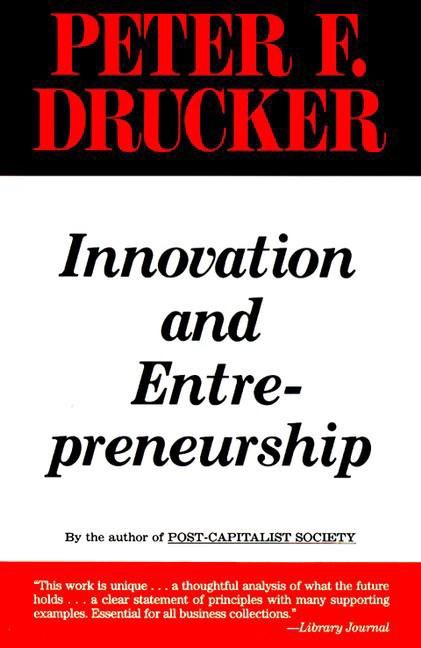Far from my previous post about Perkins, Peter Drucker’s book Innovation and Entrepreneurship was a paradoxical reading. The first chapters were painful even if brilliant. I understood there that innovation is a process which will be successful if carefully planned and managed. Fortunately, chapter 9 completely changed my perception when the author dealt with knowledge-based innovation, which includes innovations based on science and technology. So let me summarize the main points of this chapter:
1- the characteristics of knowledge-based innovation:
a. the time span between the emergence of the technology and its application is long, 20 to 30 years,
b. it is a convergence of several knowledge and until all the needed ones are available, this innovation can not succeed,
2- the requirements:
a. a careful analysis of the required factors, i.e. the available knowledge and the missing ones,
b. a clear focus on the strategic position, i.e. you have to be right the first time or others will take your place,
c. learn and practice entrepreneurial management, because most tech. innovators lack management skills ,
3- the risks:
a. first, even after a careful analysis, knowledge-based innovation remain unpredictable and turbulent (see also Moore’s books about the chasm and the tornado), and this is linked to its characteristics above; this has two important implication:
i. time plays against innovators,
ii. survival rate is low,
b. there is a limited window where new ventures start, and when it closes, there is a general shakeout, where few survive; who survives is also unpredictable. The only chance of surviving is to have a strong management and resources,… and luck;
c. there is also a receptivity gamble. Even market research does not work with these innovations and the reason why an innovation is accepted or not is also unpredictable.
I have to admit this confirms an intuition I had since my VC years: you have to make a bet and then work hard. But there is no way, you can really plan the success of knowledge-based innovations.
The end of the book is quite good, in particular its conclusion: “The first priority in talking about public policies is to define what will not work: Planning is actually incompatible with an entrepreneurial society and economy. Innovation has to be decentralized, ad hoc, autonomous, specific. It had better start small, tentative, flexible. […] It is popular today [1983!], especially in Europe, to believe that a country can have “high-tech entrepreneurship” by itself. But it is a delusion. In fact a policy which promotes high-tech and high-tech alone will not even produce high tech. All it can come with is another expensive flop, another Concorde. […] The French are right, economic and political strength requires high tech but there must be an economy full of innovators with vision and entrepreneurial values, with access to venture capital, and full of economic vigour.”

